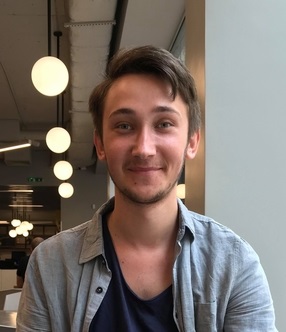Stepan Blinder sb2427@cam.ac.uk
Ukraine
Slavonic Studies, Fitzwilliam College
PhD thesis: Western European Books in the Eastern European Cultural Frontier: the Library of Zamoyski Academy (16-17th century)
Research interests:
1. Cultural History
2. Intellectual History
3. History of Education and Erudition
4. Urban History
My PhD focuses on book circulation in the Eastern European cultural borderlands between the 16-17th centuries through the university libraries. I investigate how local demand formed the repertoire of Latin, Italian, French, Spanish, German, and English books that operated among university professors in the Polish-Lithuanian Commonwealth. This research is the case study of the library of the Zamoyski Academy – the most eastern classical European university as well as created in 1594 youngest Polish-Lithuanian university. Its well-preserved documentation provides the unique possibility to figure out how professors stimulated the development of library collections, who provided the library with books from all over Europe, and how university administration supported such and initiatives. Moreover, I also investigate private professors’ libraries in order to reveal the university library’s repertoire with the reading interests of particular professors. This research bases on university’s documentation, library revisions, preserved books as well as professors’ diaries and financial summaries.
Who or what inspired you to pursue your research interests?
I was inspired to pursue my research interests by a complex of courses during my B.A. and M.A. studies at the National University of Kyiv-Mohyla Academy in Ukraine. On the one hand, I studied cultural studies approaches including semiotic and network analysis together with hermeneutics and deconstruction. On the other hand, I trained early modern culture through the approaches of transnational history. Classes in frontier studies at the University of Warsaw in Poland during the fellowship program in 2018-2019 supported my research with a communicative framework. All the aforementioned thorough pieces of training formed my research as a unity.

